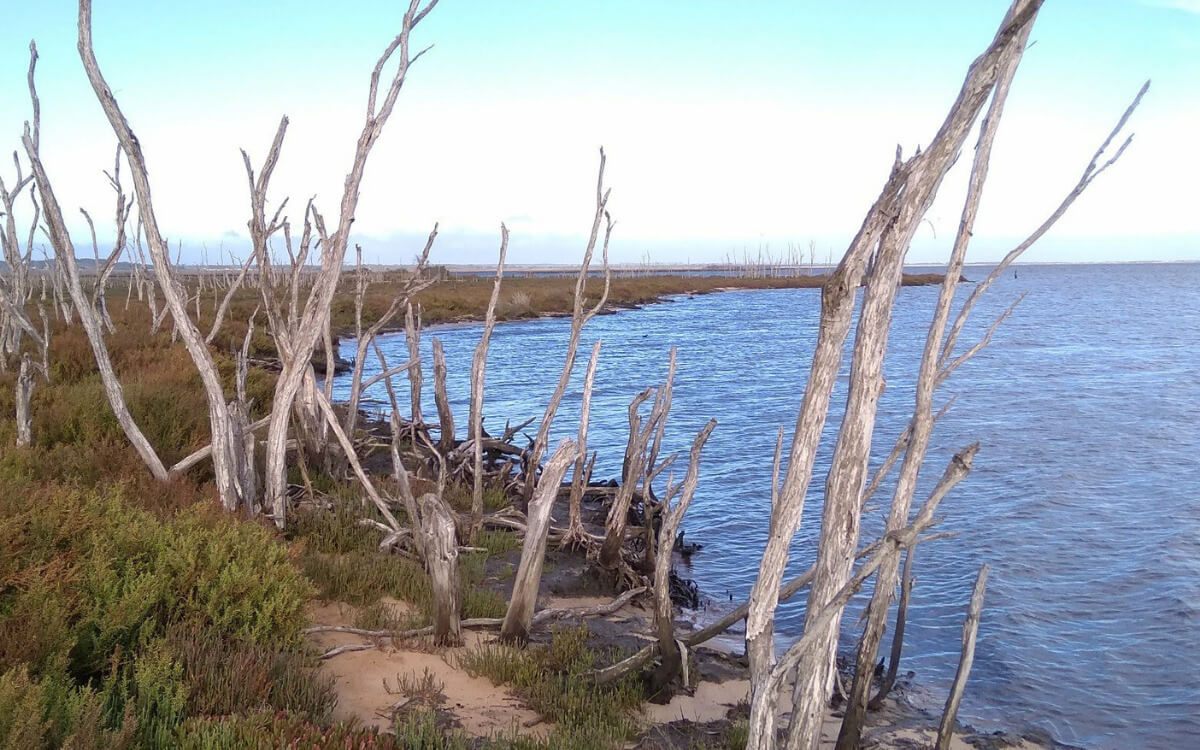24 March 2021
EJA is working with several community groups in Gippsland to improve environmental laws and governance impacting the Gippsland Lakes and catchment.
EJA lawyers met with community group members in Bairnsdale last week to discuss the environmental issues facing the Gippsland Lakes and strategise on legislative reform options to provide for the restoration and conservation of the Lakes.
The Gippsland Lakes are currently facing multiple environmental pressures, which have cumulatively led to a steep ecological decline in the last few decades. The key stressor is the progressive salinisation of the Lakes and fringing wetlands as a result of both decreased freshwater in-flows and the continued dredging of the entrance to the sea. Mining, deforestation, irrigation and extraction of water for Melbourne also impact the water quality and quantity reaching the Lakes from their large catchment.
These impacts can be seen in the loss of hundreds of hectares of swamp paperbark, extensive shoreline erosion, high mercury levels, loss of reed beds, intrusion by marine species, and reduction in fish stocks and breeding grounds.
Current governance of the Lakes is highly fragmented and has so far proven ineffective in preventing environmental deterioration in the Lakes. Without intervention, the Lakes face the possibility of irreversible ecological change.
Community groups upset by the government’s continuing failure to adequately monitor and manage the Lakes are investigating opportunities to fundamentally change the way the lakes are governed, so that their environmental decline can be reversed. Participants in the workshop represented several Landcare groups, environment organisations, recreational fishers, academics and scientists.
EJA also met with members of the local branch of Field and Game Australia (FGA) who have been instrumental in the conservation of the Heart Morass, an extensive fringing wetland at the western end of the Gippsland Lakes. FGA partnered with several other organisations to purchase and regenerate the 1,300 hectare wetland over the last 14 years. Members of FGA showed EJA lawyers the work they and their partner organisations have been doing planting 50,000 native trees, removing weeds and managing freshwater on the wetland.


